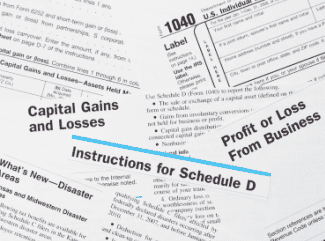When Real Estate Markets Collapse
by Ilyce Glink, Inman News
 Back in the late 1980s, there were home buyers in California who bought a house one day and woke up a few months later to find it was worth about half of what they paid.Homeowners in parts of Arizona, Nevada, Florida and other hard-hit areas might feel the same way in today’s real estate crisis.
Back in the late 1980s, there were home buyers in California who bought a house one day and woke up a few months later to find it was worth about half of what they paid.Homeowners in parts of Arizona, Nevada, Florida and other hard-hit areas might feel the same way in today’s real estate crisis.
When real estate markets collapse, as they did then and as some are now, the downward spiral can come quickly. The growing number of foreclosures and short sales don’t help, nor does rising unemployment.
What does help? First-time home buyers who hop off the fence and decide the time is right to buy and real estate investors who swoop in to sop up excess properties and recycle them back into use.
The National Association of Realtors (NAR) reported that real estate investors bought 40 percent of all homes sold in October 2008, about the same percentage as the month before.
But homeowners are still turning in their keys faster than banks can process the foreclosures. And sellers who want to sell their home and get out from under a mortgage or investment gone badly are adding to the number of properties for sale. And while some home buyers and real estate investors are whipping out their checkbooks, there are others who are waiting for even better prices before making an offer.
Which brings us to the central question on everyone’s mind: How do you call a bottom to the current real estate recession? How do you know when is the right time to buy property?
Here’s the answer: You can’t time the real estate market any better than you can time the stock market.
With stocks, the smartest thing you can do is invest regularly over time in a well-diversified portfolio. Investing regularly over time regardless of what the stock market is doing is called “dollar-cost averaging.” It is an investing philosophy where you buy more when the stock market is priced lower and less when it is higher, but overall, you’ll do better with your financial portfolio by not trying to time the market.
You can’t dollar-cost average real estate, which is far more expensive and far less liquid than stocks or bonds. Each piece of property is different, and even ordinary investors who are looking to buy several homes in the current climate can’t apply the dollar-cost-average philosophy to this particular asset class. But there are some similarities: Like the stock market, it’s apparent that the real estate market hasn’t hit rock-bottom yet. Still, like stocks, you may not need housing prices to hit the bottom before you identify a good deal.
But the fear factor — that you might buy a piece of real estate and then watch the value fall further — is very real. No one wants to lose money, even when it’s just on paper. The substantial 40 percent-plus losses in the stock market seem very real to those who look at their 401(k) and brokerage account statements at the end of each month, even if retirement (and the need to withdraw from those accounts) is in the distant future.
I recently heard this from a reader: “There are people in Los Angeles who bought a house about a year or two ago and now feel they should have waited to get a better deal. They are thinking about walking away from the house they just bought and getting one down the block that is bigger and cheaper than the house they just bought. If we all do this, when will it end?”
The answer is, there are long-term consequences to walking away from property. Having a foreclosure on your credit history may mean you’ll be ineligible for conventional financing for up to five years on your next purchase. I recently received a letter from a reader claiming they had been denied a loan for a home due to a bankruptcy back in 1992.
Perhaps it will help to remember a few basic rules about real estate:
-
Buying real estate was never about becoming a millionaire overnight;
-
Buying with nothing down is a game that infrequently works out, particularly now when lenders are tightening their requirements for making loans;
- If the rental income on a piece of real estate covers (or more than covers) your costs, it can be a great deal over the long haul, as prices and rents rise.
Here’s a great truth about investing: You don’t have to buy at the very lowest price and sell at the very highest price to make money.
To get even more valuable advice from Ilyce, visit her Personal Finance and Real Estate Center.What’s your opinion? Leave your comments below or send a letter to the editor. To contact the writer, click the byline at the top of the story.
Copyright 2008 Ilyce R. Glink
See Ilyce Glink’s feature, Smart Budgeting For Any Economy.
American Apartment Owners Association offers discounts on products and services related to your commercial housing investment including REAL ESTATE FORMS, tenant debt collection, tenant background checks, insurance and financing. Find out more at www.joinaaoa.org.
To subscribe to our blog, click here.















 Accessibility
Accessibility